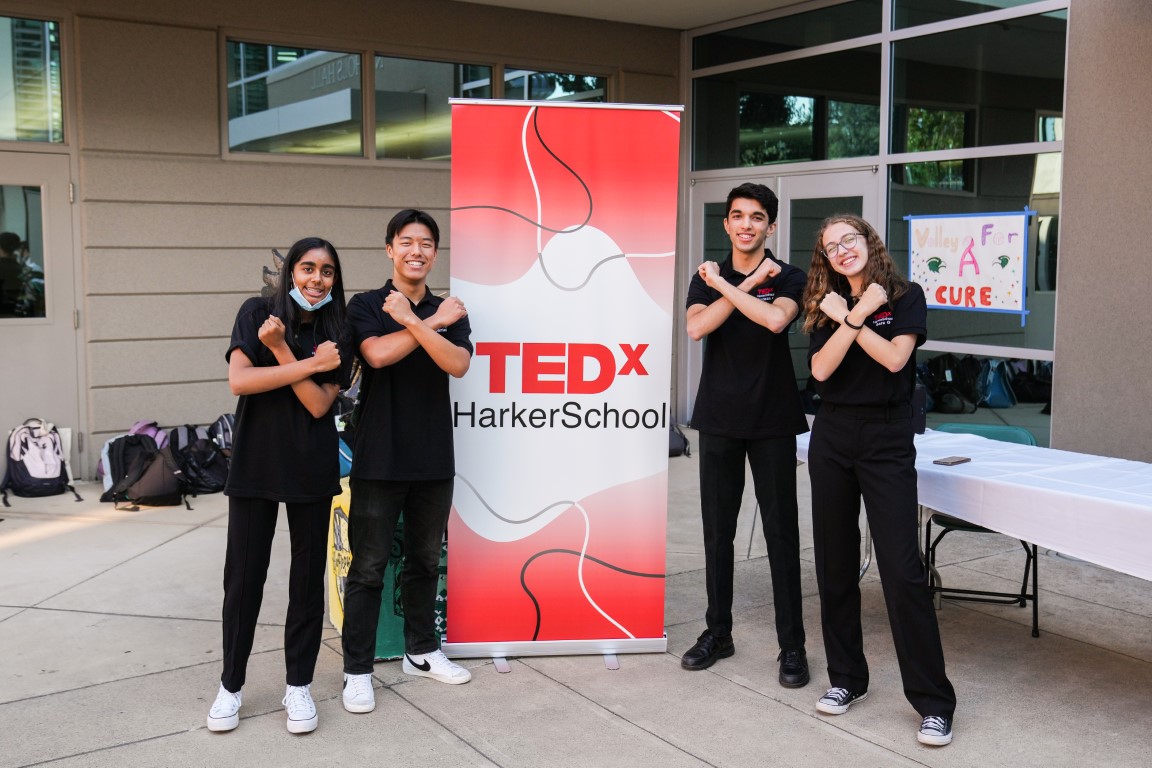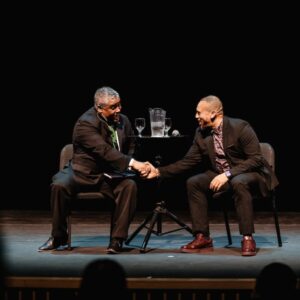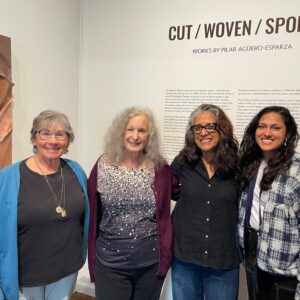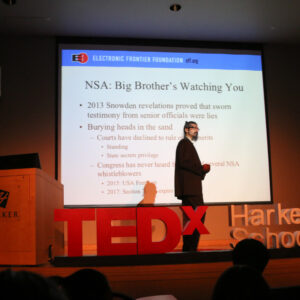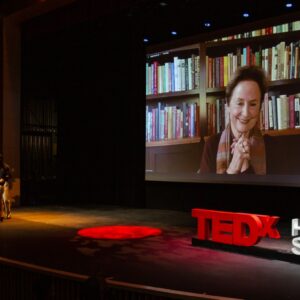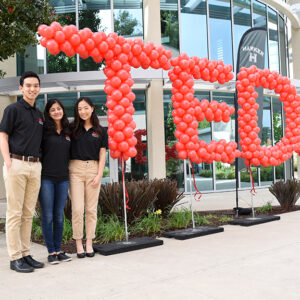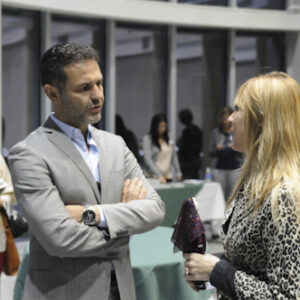On Oct. 21, the 2022 installment of TEDx Harker School took place at Nichols Hall, attended by hundreds of students. In addition to listening to the lineup of speakers, students enjoyed refreshments, vendor and activity booths, and socializing both before and after the speaker appearances.
The evening’s first speaker was veteran tech evangelist Guy Kawasaki, formerly of Apple and now of Canva. Kawasaki shared several important lessons he learned over his long career, such as not to worry too early on about discovering a passion. “I’m 68 years old. Three years ago, I discovered podcasts,” he said. “Now podcasts are my passion.” Other important lessons he imparted to the students were to build things they would want to use and break into a chosen field any way they can, using the example of Jane Goodall, who began working at the Leakey Foundation due to her secretarial skills.
Up next was Harker speech and debate teacher Scott Odekirk, who talked about society’s relationship to death and how it should be improved to become a “full, empathetic and community-based relationship,” he said after the event. Odekirk shared his own experience being in close proximity to this unique trauma with the death of his first wife. While in support groups, he met others who had similar experiences, including armed services veterans and health care workers. He then asked the audience to reflect on the ways mourning, as well as mourners, are treated. “My ultimate ask is for everyone to think about the way that we can make mourning more central to our community relationships,” he said.
Senior Arissa Huda, the final speaker for the evening, spoke on what she believed to be ineffective uses of empathy and how it could also be used to improve quality and length of life. Huda explained that “empathy in the mainstream is ineffective and our progress is stagnated as a result through performative activism, for example,” she said after the event. She also used health care as an example of how empathy can be effective, noting that doctors’ enactment of empathy results in better patient care plans, which in turn leads to improved quality and length of life for their patients. In closing, Huda shared how the community “could implement genuine and authentic empathy into our lives,” she said.
